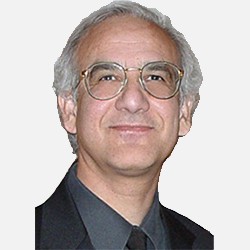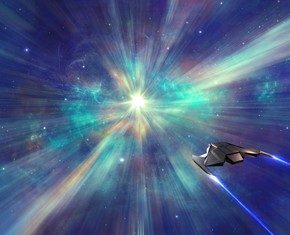The views expressed in our content reflect individual perspectives and do not represent the authoritative views of the Baha'i Faith.

Border between North and South Korea
(excerpted from Abdu’l-Baha’s Journey West: The Course of Human Solidarity, Palgrave, 2013, used with permission)
Click here to read: Who Made These Borders? Part 1
In his work The Secret of Divine Civilization Abdu’l-Baha called for a reconstruction of both tradition and modernity in the context of a global and peaceful understanding of the world. In fact, Abdu’l-Baha came to the West to advocate a new form of identity and social organization that is based on the recognition of a universalistic and global orientation.
Abdu’l-Baha’s talks in Europe and North America take his critique of nationalist ideology to unprecedented levels of complexity. Three principles are frequently emphasized by Abdu’l-Baha with regard to nationalist and patriotic ideologies:
First, he emphasizes the arbitrary and invented character of all national boundaries and ideologies. Nationalism is therefore not a primordial entity but rather a socially constructed arbitrary prejudice.
Secondly, he argues that nationalism is usually a product of violence, murder, coercion, and injustice. It is war, plunder, the force of the sword, and brutality that have acted as the main agents of demarcation of national and political categories throughout human history.
Thirdly, nationalist ideology is based upon a confused and immoral distinction between the hero and the murderer. In reality, Abdu’l-Baha says national heroes are usually the greatest murderers and criminals. We can see that Abdu’l-Baha is engaged in a systematic critique of nationalist amnesia. His talks were intended to fight against this collective unconscious identity and to bring the light of reason, consciousness and human solidarity to the realm of culture and society.
Abdu’l-Baha makes it clear that not only are nationalistic distinctions arbitrary and invented, they are inventions of particularistic interests, the force of coercion, murder and brutality. In other words, nationalist identities are forms of unconsciousness that are rooted in the law of the jungle — and not laws governing morality and human rights:
Battle of Friedland, where Napoleon invaded Russian (over 40,000 dead)
Why, then, all these fallacious national and racial distinctions? These boundary lines and artificial barriers have been created by despots and conquerors who sought to attain dominion over mankind, thereby engendering patriotic feeling and rousing selfish devotion to merely local standards of government. As a rule they themselves enjoyed luxuries in palaces, surrounded by conditions of ease and affluence, while armies of soldiers, civilians and tillers of the soil fought and died at their command upon the field of battle, shedding their innocent blood for a delusion such as “we are Germans,” “our enemies are French,” etc., when, in reality, all are humankind, all belong to one family… – Promulgation of Universal Peace, p. 354.
If the people of the world become conscious of the fact that their borders are products of genocide, war, conquest and brute force, they will be more likely to look at other people and nations as human beings, feel solidarity with all humanity, regard the interests and needs of others as equally legitimate, and develop the habit of putting themselves in their shoes.
Nationalistic fetishism, however, prevents us from seeking the universal interests of the human race. Instead, it teaches us to consider our needs as a moral imperative, while the needs of others are entirely ignored through a process of objectification and the othering of outsiders.
Peace requires social justice, the overcoming of patriarchy, the rejection of traditionalism and the embracing of independent investigations of truth, the elimination of all prejudices, a spiritual definition of human reality, harmony between material civilization and moral/spiritual civilization, and commitment to the principles of the oneness of humanity, collective security, and global peace. In addition, we need a reconstruction of religion so that religion becomes a cause of love and unity among all human beings, which reconciles religion and reason, and defines religion as a dynamic and historically specific reality. These are essential conditions and definitions of peace.
When we study Abdu’l-Baha’s complex approach to his positive definition of peace, we can conclude that behind all these ideas and principles there lies a common vision of human beings as an intersubjective, communicative, and interdependent community of spirit. Love is the supreme principle of life, and it is love that is the ultimate animating principle of human reality. Attainment of collective self-consciousness by the human species means the attainment of peace and the end of the self-estrangement of humanity. This is the true meaning of enlightenment.
You May Also Like
Comments


















"On the other hand, every country must be properly delimited, its exact frontiers marked, its national integrity secured, its permanent independence protected, and its vital interests honoured by the family of nations." Quoted From Peace
by Bahá'u'lláh, Abdu'l-Bahá, Shoghi Effendi, and Universal House of Justice
compiled by Research Department of the Universal House of Justice.
published in Compilation of Compilations, Volume 2, pages 151-200
1991